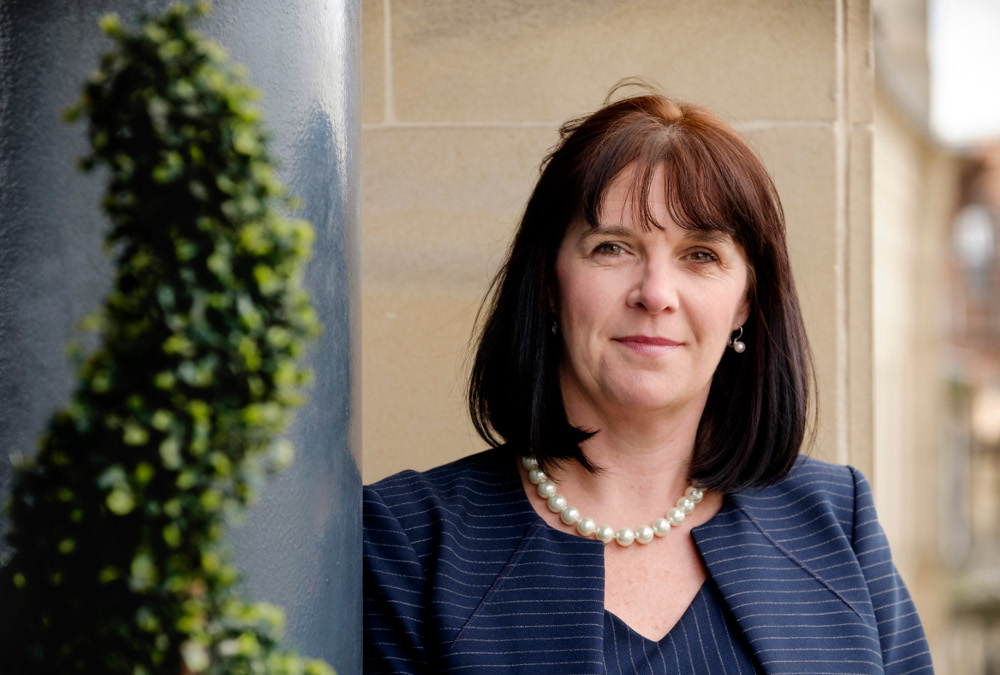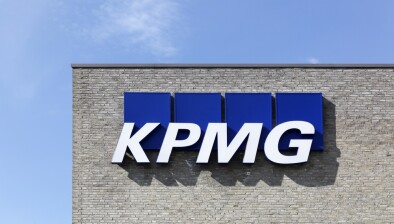KPMG reports resilient performance in 2020 despite COVID-19
KPMG UK has published its annual results for the financial year ended 30 September 2020 reporting a resilient performance, despite COVID-19 challenges.

Catherine Burnet, KPMG’s senior partner in Scotland
Despite the pandemic’s impact on seven months of the firm’s financial year, revenue decreased by just 4% from £2.4 billion to £2.3bn. The decrease was driven in part by the sale of the firm’s pensions business, which completed in March 2020. Excluding the disposal of the pensions business, like-for-like revenue reduced by 2%.
Underlying profit decreased by 6% year on year, from £307 million to £288m, as a result of the impact of the pandemic on the second half of the financial year. As a result, average partner distribution decreased by 11%, from £640k to £572k, as the firm prioritised protecting jobs and supporting employees.
The firm’s audit practice posted 3% year-on-year growth in net sales to £606m. The tax and legal team saw a decrease in net sales of -6% to £373m. Net sales in the consulting practice and deal advisory practice both saw a decrease of -2% to £574m and £400m respectively, as clients paused discretionary projects and M&A activity slowed at the beginning of the pandemic.
At the onset of the pandemic, the firm successfully moved all colleagues to remote working and introduced a special leave code, enabling its people to take unlimited paid time off to care for family and friends during the pandemic. This remains in place to support colleagues. KPMG did not furlough its staff nor access government COVID-19 loans.
The firm also continued to invest in its workforce, running recruitment and onboarding processes online, hiring over 900 graduates and apprentices, with 46% located outside of London. The firm also made 950 experienced hires during the year and recognised internal talent, promoting more than 1,800 colleagues across the business.
To support colleagues working from home and from the firm’s offices, KPMG invested in making its premises COVID-secure and bought equipment for staff to use at home, such as desks, monitors and chairs.
The firm is now preparing for a future of hybrid working, and over the course of 2021 will roll out an additional £44m programme of investment to transform its offices and invest in new home working technology for staff.
The new hybrid working model will introduce a more flexible way of working, tailored to individuals’ roles and lives. It will see KPMG staff work part of the week from home and part in KPMG offices or at client sites. The model will also enable the firm greater access to a broader and diverse workforce.
KPMG has said it will also roll out a programme of investment in technology as it upgrades its workforce’s digital tools. The firm’s colleagues will be supplied with market leading devices to enhance their experience and suit an increasingly flexible way of working.
This year, in addition to its gender and ethnicity pay gap reporting, KPMG has voluntarily published its Sexual Orientation, Disability and Black Heritage pay gaps, as the firm makes further commitments to drive diversity and inclusion.
Catherine Burnet, KPMG’s senior partner in Scotland, said: “The unprecedented events of 2020 created challenges for everyone in Scotland. At KPMG, our focus was ensuring the wellbeing of our people, the sustainability of our long-term growth strategy, and helping our clients build their own resilience through a period of great uncertainty.
“We also passionately supported our communities through a range of fund-raising and volunteering initiatives, particularly in the advancement of education, funding NSPCC’s Childline and simply getting food to those in need.
“We now have more than 1,000 employees at our bases across the country, including our new office at Marischal Square in Aberdeen. Investing in current and future talent is at the heart of our success story. Over the last year, we promoted 86 colleagues in Scotland and we hired more than 30 experienced professionals, including new Partner and Head of Tax for Scotland, Vishal Chopra, and Associate Partner, Philippa Sanderson, who leads our Private Enterprise Tax offering. Meanwhile, 44 graduates and 12 apprentices joined the Scottish practice.
“As we look to the future, businesses like KPMG have a key role to play in helping to drive a return to sustainable growth in Scotland. We’re working tirelessly with our clients, political leaders and the wider business community, and I’m confident we’re in a robust, resilient and sustainable position to continue growing and playing a vital role in Scotland’s economic success.”
Bill Michael, senior partner and chair of KPMG in the UK, added: “This has been an extraordinary year. Throughout the pandemic our priority has been to protect the wellbeing of our people and maintain the long-term resilience of our firm. We have achieved that. Over the past year, our people have risen to the challenge in the face of adversity to help clients. They have continued to support each other, and our communities when they have needed us most. I am incredibly proud of their efforts.
“We started the financial year strongly, recording high single digit growth prior to the onset of the pandemic. Like many businesses, our performance was then impacted by COVID-19. However, thanks to the hard work of our people, our business has remained resilient and our financial performance robust.
“As we look ahead, we have started our new financial year strongly. Our first quarter’s performance has been positive and our sales pipeline is strong. The M&A market has resurged, and clients are resuming discretionary projects as they adapt to the changes the pandemic has brought both to their business and market. We have an important role to play to help our clients recover from the aftermath of this health crisis and rebuild their businesses for growth.”







